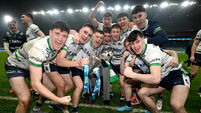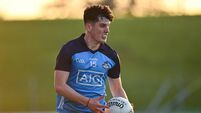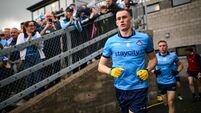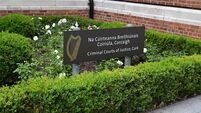John Fogarty: Action needed as refereeing shortage mirrors decline of priesthood
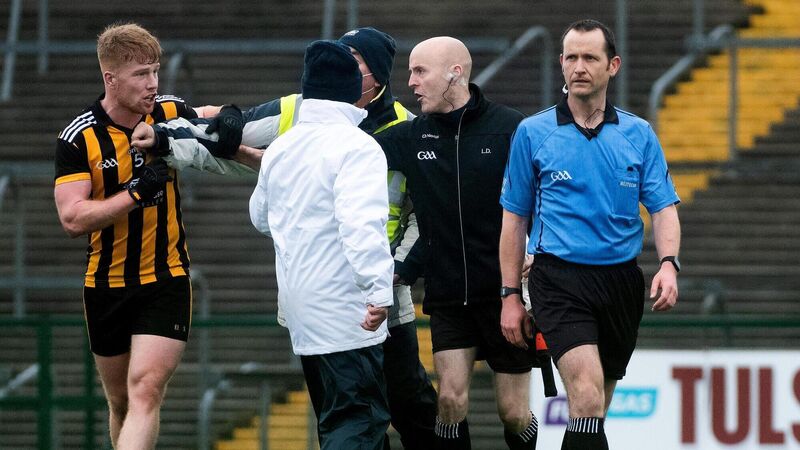
Ref Jerome Henry is escorted off the field as Mountbellew/Moylough’s Michael Daly attempts to remonstrate after the AIB Connacht SFC semi-final at Dr Hyde Park in Roscommon.


